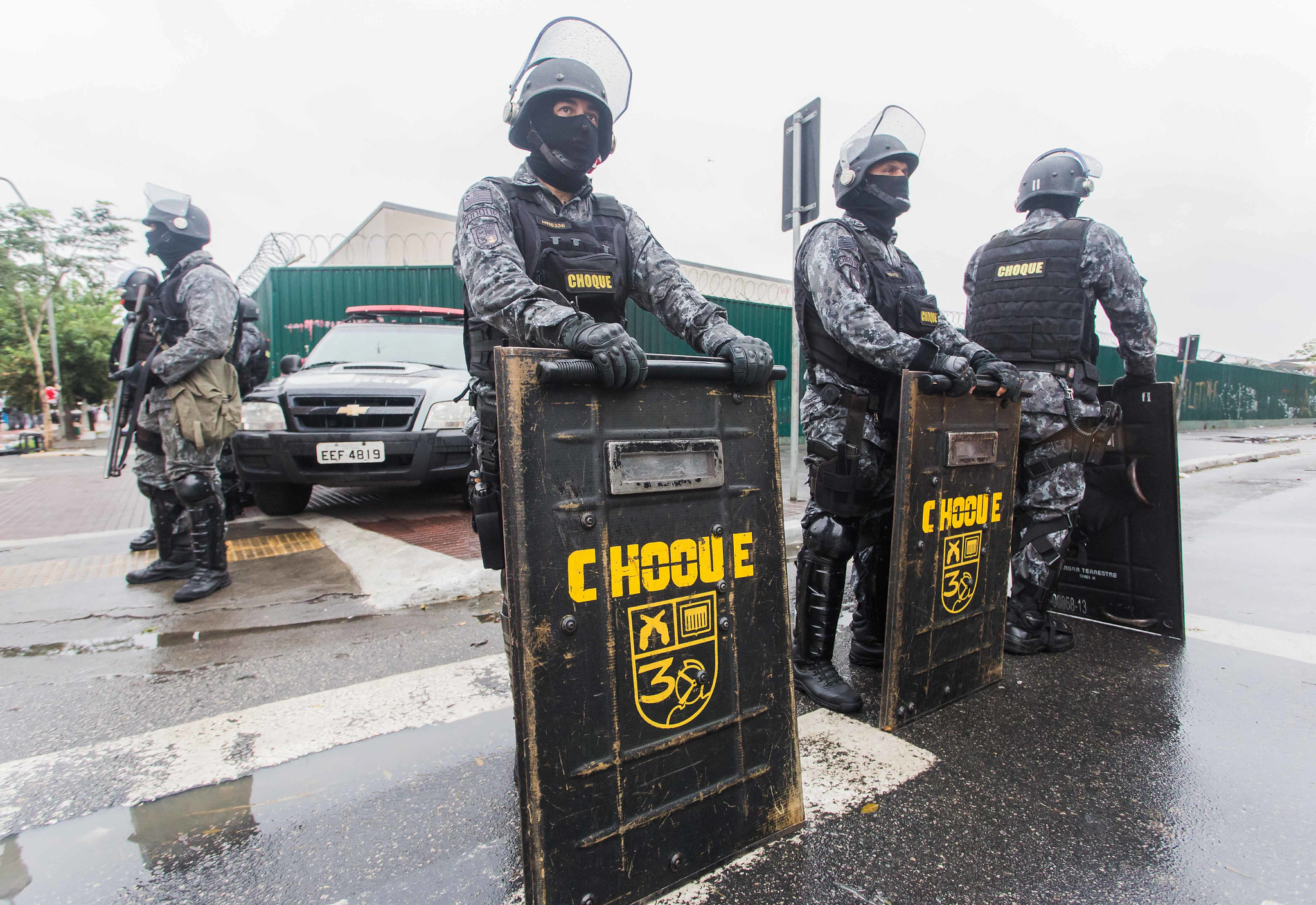On September 5, São Paulo military police ended a 40-day massacre that left at least 28 people dead. Operation Shield police officers justified their killings in the customary way of drug war massacres in Brazil: People selling drugs opened fire when they saw patrols enter the neighborhood, and so there was no choice but to respond.
Operation Shield was called off as pressure mounted to force law enforcement to wear body cameras, which none of the officers involved did at any point. It ends as the second-deadliest militarized police operation on record in São Paulo—surpassed only by the 1992 Carandiru Prison Massacre, in which police executed 111 people in a span of 30 minutes.
Governor Tarcisio de Freitas, a close ally of former right-wing president Jair Bolsonaro, criticized the program under which about half the state battalions were using body cameras during his electoral campaign in 2022, saying that this inspired a lack of trust in police officers. Freitas then hedged by stating that—if elected—he could discuss the issue with police force representatives. Since his inauguration in January, he has effectively frozen the program.
Deciding whether drug users become drug sellers at 25 grams or 60 grams still won’t change the law.
Amid the landmark Brazil Supreme Court hearing over the decriminalization of drug possession for personal use, the criminalization of drug selling and distributing allows state violence to continue uninterrupted. In a country with no legal death penalty, police use criminal records to justify executions outside the law.
The current law holds that in separating possession and distribution, the judge should consider not just the quantity of drugs but the physical environment and social setting in which they were seized, as well as the defendant’s conduct and background. These details, of course, are provided via written accounts from the arresting officers.
“Young people, especially [the] Black and Brown, the illiterate, are considered traffickers with much smaller quantities of drugs (marijuana or cocaine) than people over 30 years old, white and with higher education,” Justice Alexandre de Moraes wrote in a court document a few days after Operation Shield commenced.
Supreme Court Justices deciding whether drug users become drug sellers when they have 25 grams of cannabis or 60 grams will still not change the actual law. It will only create jurisprudence—establishing the theory of what the the law should be, rather than what it is.
A separate legislative process or presidential decree would be required to change the law. But before that, five out of 11 justices have yet to vote, all of whom have the authority to request further postponement, after which the Supreme Court must schedule the hearing to proceed once again. The process has dragged on for eight years. In the absence of more comprehensive reform, massacres like Operation Shield will endlessly carry on as well.
Photograph of 2017 cracolândia police raid via Governor of the State of São Paulo/Creative Commons 2.0





Show Comments